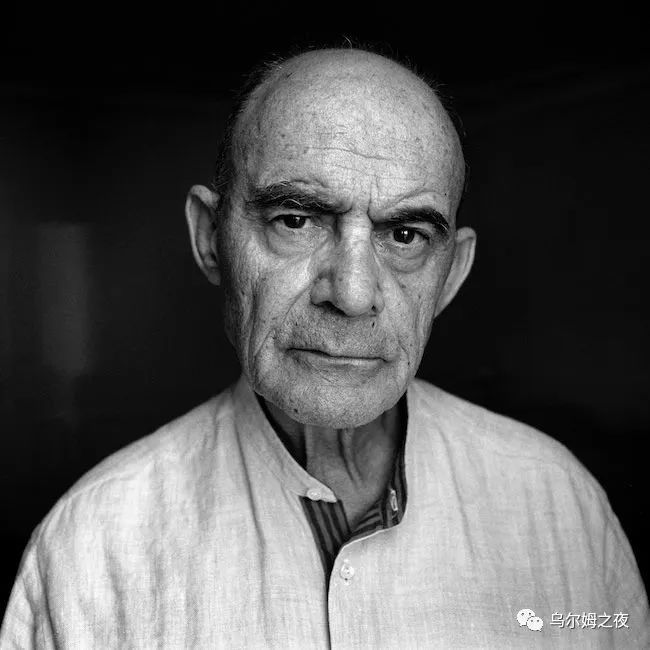
我們的智性生活正在受到威脅。空洞的意識形態話語佔據了道德高地,邊緣人的存在本身岌岌可危。風暴的軌跡難以預測,但氣壓的異常足以讓我們緊張起來。我們需要在漫遊中搭建營帳,守衛議事自由。
Jean-Luc Nancy: A virus all too human | Philosophy in times of epidemic
This is the third issue of the Youtube channel "Philosopher en temps de l'épidémie" on March 17, 2020. The invitee is French philosopher Jean-Luc Nancy.
Here, Nancy offers an idea of disease that is clearly different from Agamben’s.

Jean-Luc Nancy (1940 - ) is a famous contemporary French philosopher. He continued Derrida’s idea of deconstruction, using the non-efficacy of community, the self-deconstruction of Christianity, the meaning of the world and the body Touch expands the scope of deconstruction.
A virus that's all too human
Translator: No No Proofreader: Lingchuan Editor: No No
As is often said, Europe has been exporting its wars since 1945. As it unraveled itself, Europe had no idea what to do except sow division through its former colonies and its alliances, and a series of tense relationships with the New World. Between these new worlds, Europe is only a memory but pretends to have a future .
For a long time, Europe imported not just goods, but mostly people. Although this is nothing new, with the export of conflict and climate disruption (these events also occur in Europe), this phenomenon has become more urgent and even very common. Until now, Europe has even reached the point of importing the epidemic.
what does that mean? This is not just a simple communication, this communication has its own medium and path. Europe is not the center of the world, it is far from it, yet it still strives to play the role of an outdated role model . Elsewhere, there may be strong attractions and great opportunities. For example, North America sometimes has slightly older traditions, while Asia and Africa have something newer (except for South America, which has a lot of characteristics that are a mixture of Europe and other places). But Europe still seems to be considered, more or less, a desirable refuge.
This ancient theater has many paradigms - law, science, democracy, publishing, welfare - and is a place where all kinds of desires are aroused, even if the objects of desire are decayed or even unusable. The theater remains open to the public, even if it is less hospitable to those who cannot pay for their desires. So don’t be surprised if the virus makes its way into the theater’s lobby.
Don’t be surprised if a viral outbreak causes more chaos than where it originated. Because in China, people are already in the market and anti-epidemic order. In Europe, people are still trapped in the chaos between countries and between breaths. This has led to the current hesitation and difficulty adapting. On the other side of the ocean, the United States immediately resumed its arrogant isolationism and strong decisiveness. And Europe is not only always looking for itself, but also looking for, discovering, exploring and developing the world until it is lost again.
Europe became the epicenter of the epidemic just when the country where it originated seemed to be coming under control, and when many less affected countries were no longer open to Europeans as they were to the Chinese. Europe appears to be affected by travelers who have been to China (for business, tourism or study), visitors from China and elsewhere (for business, tourism or study), and the general uncertainty in Europe and its internal divisions.
People may have tried to portray it this way: in Europe it was "run away!" and elsewhere it was "we will fight you together, virus!". Or to put it another way: In Europe, the traditional sense of deniability, skepticism or free spirit has more place than elsewhere . This is the inheritance of the indulgence and radical freedom of reason which, for us old Europeans, represented the life of the spirit.
Therefore, the inevitable repeated expressions of "exceptional measures" also allow the ghost of Carl Schmitt to emerge in a hasty and chaotic form. The virus inspires rhetoric of grandiosity and bravado. People have to avoid being fooled first by bluff, and then by the virus—the equivalent of being fooled twice—and perhaps by an overwhelming panic. Or perhaps he was fooled by a pretentious sense of childishness...
Everyone (including me) had something critical, skeptical, or interpretive to say. Philosophy, psychoanalysis, and politics about viruses are all going very well (except for Michel Degui’s interesting poem “Coronation” published on the Po&sie magazine website).
Everyone is discussing and arguing because we have a long-standing habit of debate, confusion, and hesitation. In the world, what seems to be dominant is security, control and decision-making. At least, this is the picture we can try to construct in our imagination of the world.
As a plague, coronavirus is a product of globalization in every sense of the word . It is an active, combative and efficient free trader who clearly exhibits the characteristics and trends of globalization. It joins a grand process in which culture disintegrates as a power mechanism emerges from it. This power regime combines not only technology, economics, and dominance, but also, if necessary, the physiological and physical realms (oil and atomic energy come to mind). At the same time, the growth model was indeed questioned, so the French head of state believed that it was necessary to pay attention to it. Chances are, we'll be forced to modify our algorithms — but there's no evidence that doing so will get us back on track.
Because this is not enough to eliminate the virus. If technical and political control proves to be ends in themselves, then such control will only turn the world into a wrestling field against each other and deprive them of all civilized discourse that emerged not long ago. The savagery of viral contagion breeds the savagery of management. We are already faced with the need to identify patients who can be treated. (Not to mention the inevitable economic and social injustices.) In this situation, there are no cunning calculations by Machiavellian conspirators, nor is there any abuse of state power. There is only a general law of the interconnection of all things, and the control of this interconnection is the stakes of techno-economic power.
In the past, plagues could be viewed as divine punishment, and often diseases were exogenous to the social fabric over long periods of time. Today, most diseases are endogenous, caused by the physical, material and toxic conditions in which we live. What was once sacred has become human, even, as Nietzsche said , "all too human." Modernity has long been characterized by, in Pascal's words: "man's infinite transcendence of himself." But if humanity has gone “too far” – that is, it has not yet reached the level of divinity that Pascal called – then in reality humanity has transcended nothing. Human nature is surpassed by the events and conditions it causes, and human beings eventually fall into a quagmire of human nature.
Viruses, however, reveal a divine absence as we recognize their biological nature. We even discover that life is far more complex and difficult to grasp than we appear. At the same time, the exercise of political power – such as that of a people, a “community” such as the “EU”), or an authoritarian regime – also embodies a different kind of complexity, which is also more difficult to grasp than it seems. Thus, we better understand how ridiculous the term "biopolitics" is when life and politics challenge us together . Our scientific knowledge puts us in danger of relying solely on our own technological power, but there is no pure and simple technology, because knowledge itself contains many uncertainties (to understand this, just read those published Research). Technical power is not univocal, because how can a political power that is supposed to provide objective data and meet reasonable expectations be univocal?
Of course, this is still considered an objectivity that should guide decision-making. If this objectivity means "isolation" and "keeping at a distance," what level of authority is required for it to be adhered to? Of course, conversely, where do the arbitrary actions of a government that wants to guarantee the Olympic Games - and this is just one example among many - begin? In this Olympic Games, the government expects to obtain various benefits in return. This expectation is also the expectation of many companies and managers. For them, the government is one of the tools they can use. For another example, if a government wants to take the opportunity to incite nationalism, where will its arbitrary actions begin?
The virus, like a magnifying glass, exposes our own contradictions and limitations. The reality principle knocks on the door of the pleasure principle. Death follows us everywhere. We exported death along with wars, famines, and disasters, and we believed that death was closely related to other viruses and cancers (the latter also spread in virus-like forms), waiting for us on the street corners. Hey! We are humans, talking featherless bipeds, but certainly not surhumain or trans-humain. Is it too human? Or shouldn’t we understand that we can never be “too” human? Otherwise, will we be infinitely surpassed?
https://www.youtube.com/watch?v=Msu0hAJXdhw
A virus all too human: Jean-Luc Nancy | Philosophy in times of epidemic (3)
Invité Jean-Luc Nancy: "Un Troubled Humain Virus"
Our intellectual life is under threat.
Empty ideological words occupy the moral high ground;
The very existence of marginalized people is at stake.
The trajectory of a storm is difficult to predict, but the abnormal pressure is enough to make us nervous.
At a critical moment when the world order is changing,
It would be an irresponsible attitude to cover one's ears and steal the news or scratch the surface.
We need serious, lively and honest discussion,
During the wanderings, camps were set up to guard the freedom of discussion.
Ulm Night is a chance encounter without any ultimate purpose,
Because any myth would instantly turn into a comedy in the present moment.
This is a vital linkage of theory, reflection and interdisciplinarity.
It aims to infinitely expand the space for public speech on the premise of shattering all myths.
This is a liberating practice rooted in the present, gathered in the office, and active in the streets.
It has none of its members and all of its members.
For future discussions, the topics are open, regardless of discipline, and will be decided by participants through discussion.
The event is currently in Paris, if you would like to participate in discussions or join the team please contact Little Ulm.

Like my work?
Don't forget to support or like, so I know you are with me..
Comment…